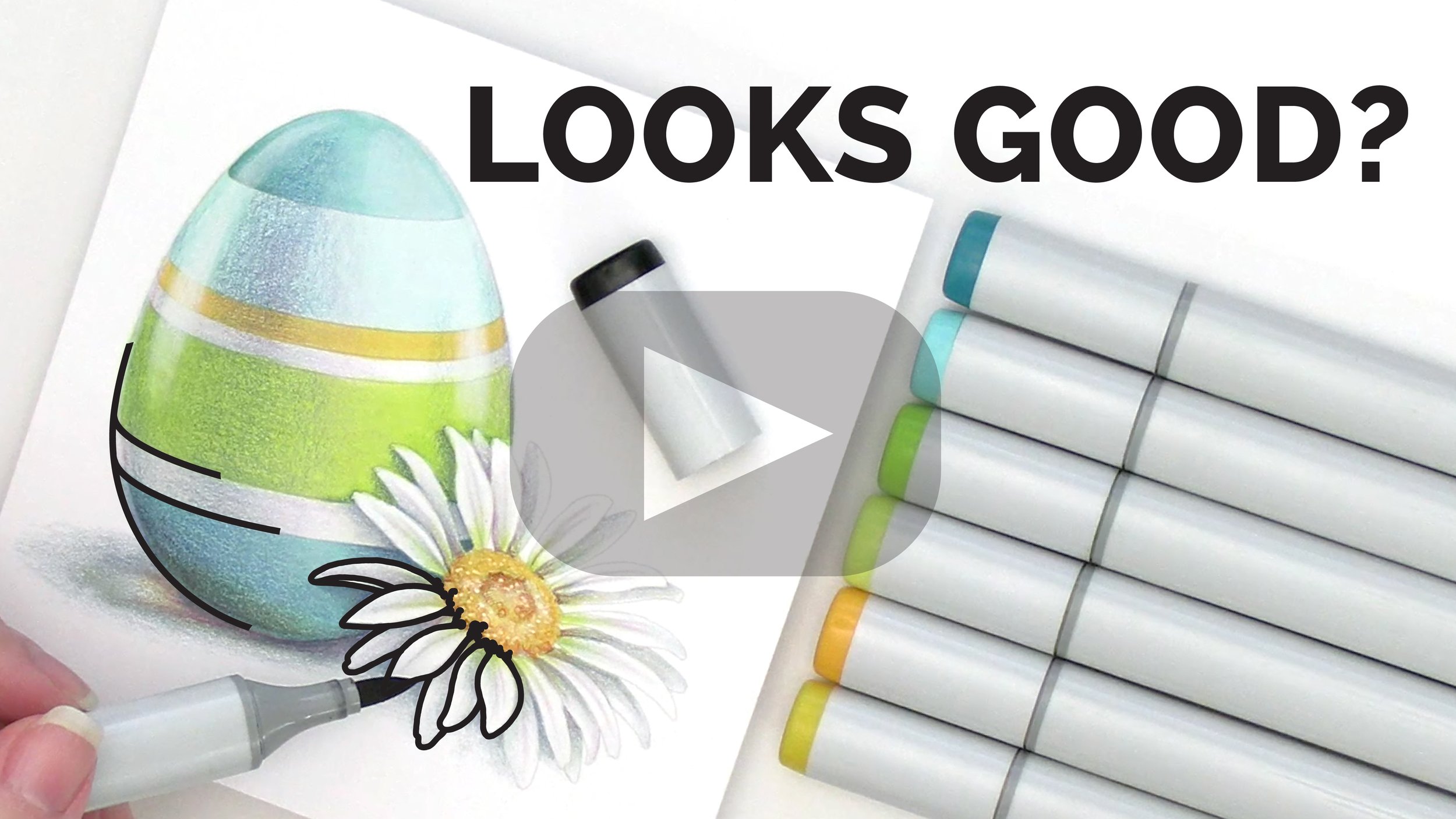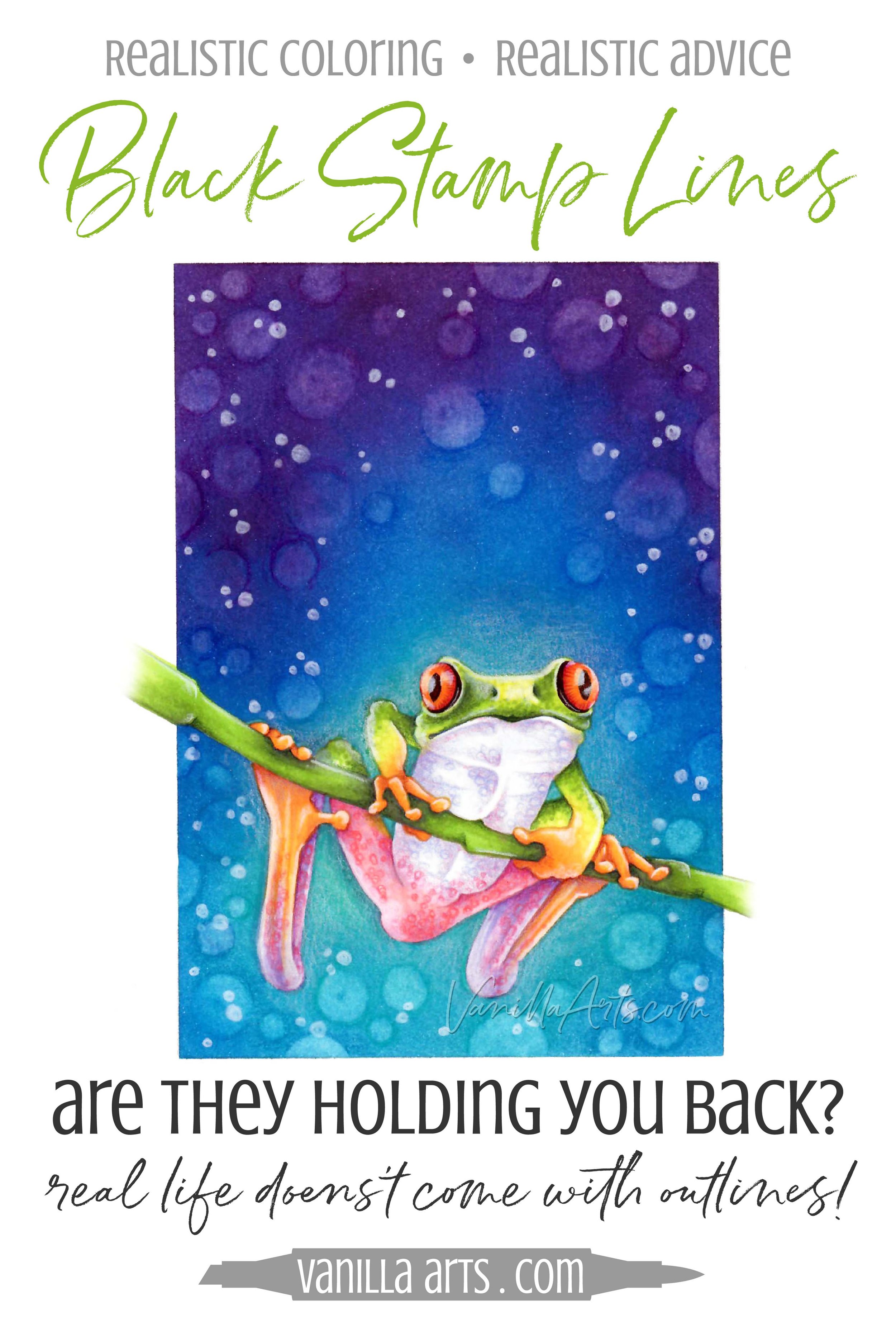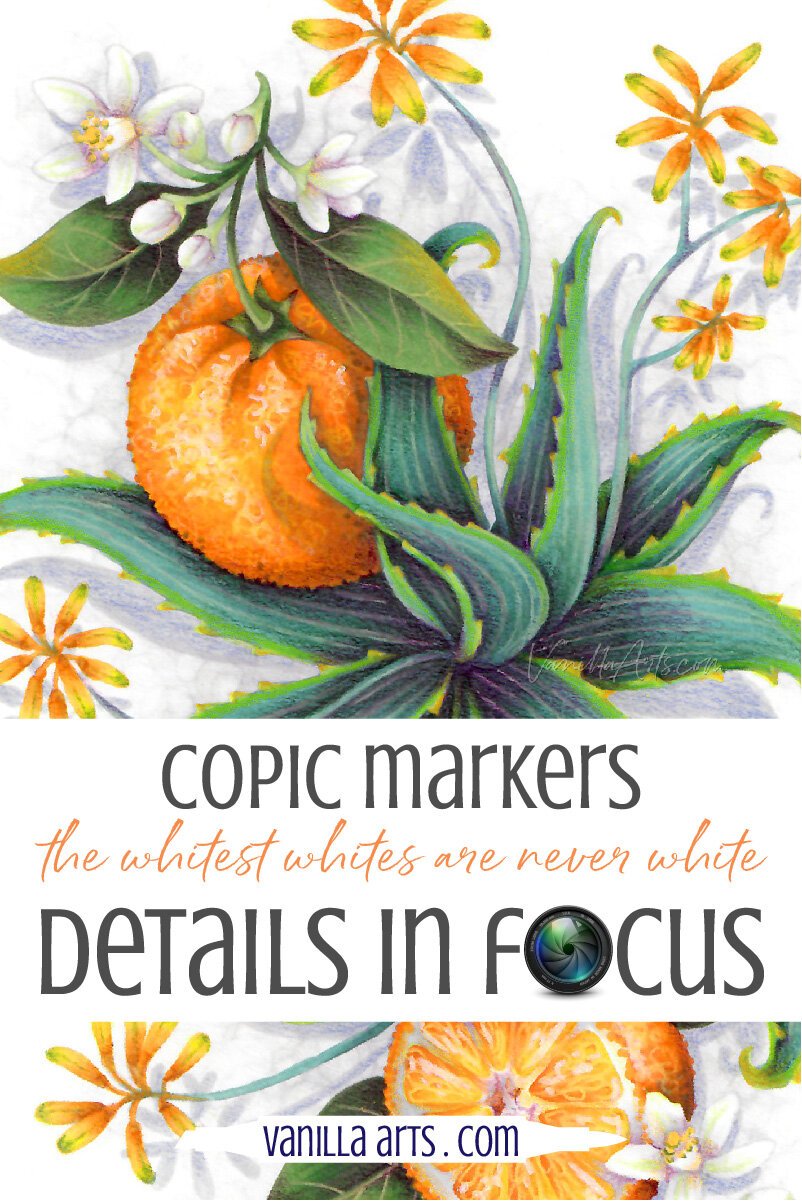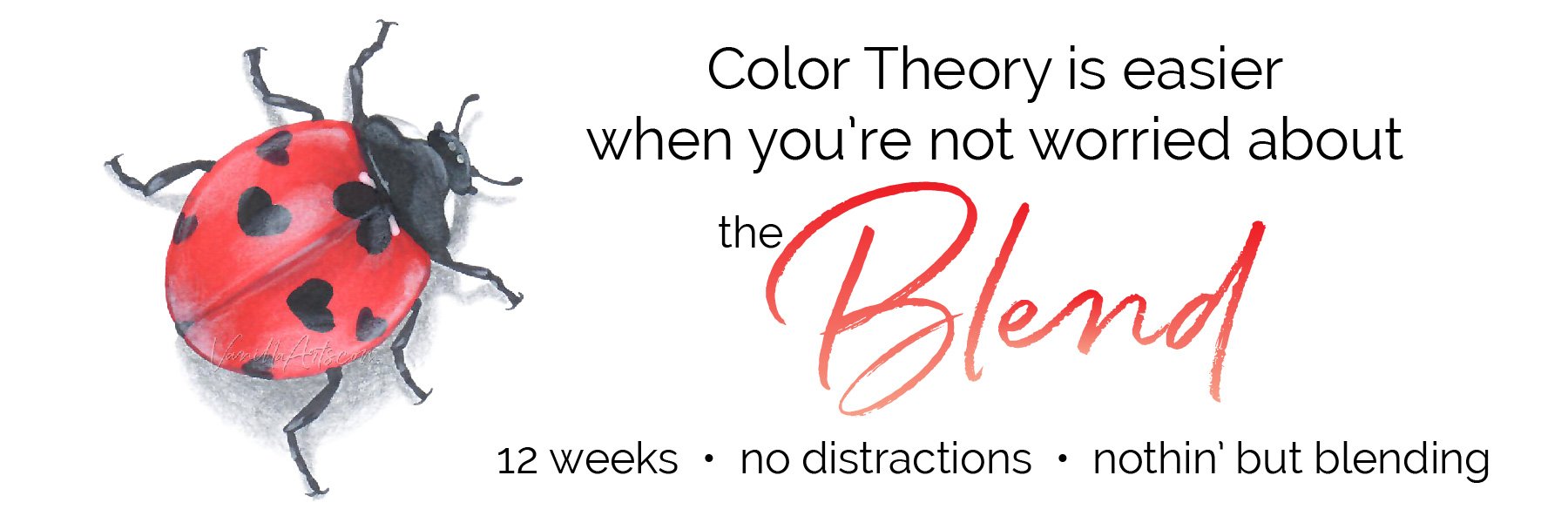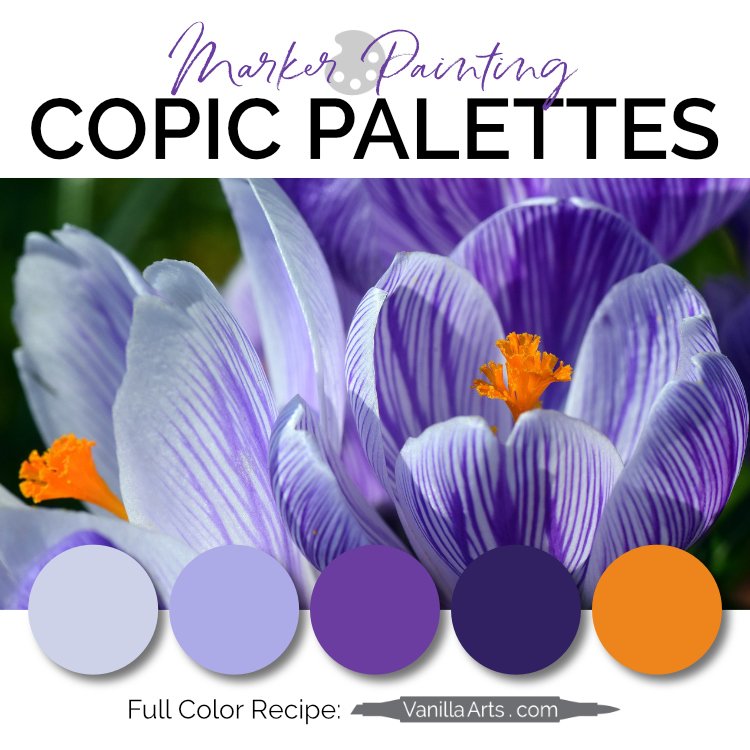Black Line Art Limits Your Artistic Growth (video resources)
Do you color pages or stamps with strong black outlines?
Black outlines and black line art can be great for beginners!
With simple shapes and easy to read edges, the strong line art found in coloring books and digital stamps makes for easy coloring with Copic Markers, colored pencils, or even watercolor.
And if you draw your own images, starting with a black inking layer is standard practice!
But beginner-friendly line art quickly starts to hamper your growth as you blend and color with more skill.
What once was helpful is now the thing holding you back.
If your coloring skills have stagnated and your artistic growth has plateaued…
My latest video shares the dangers of black line art and why it prevents you from moving beyond beginner level coloring.
WATCH: Black Line Art Limits Your Artistic Growth
(click below to watch at YouTube)
Want the Photo Reference?
The striped egg in the “Easter Egg” online class is completely imaginary. Students begin with a white egg, similar to the one here. Amy guides you through the process for adding photo realism and color to a very plain egg.
You can download a similar photo for FREE from Pixabay.com
Special thanks to the photographer who goes by the name of “3205123” on Pixabay. We really appreciate photographers who offer their excellent pics for creative use!
Tips for overcoming the problems caused by black outlines
TIP: If you ink your own drawings, wait until after the coloring to ink.
People often think they’re immune from coloring issues because they can draw.
But drawing and coloring are completely different skills!
The sad fact is that many manga and comic artists use black inking as a crutch— using lines to separate the head from the neck or the sleeve of a shirt from the torso.
If your coloring can’t define and separate objects, then you’re not as advanced as you think you are.
QUESTION: I love to stamp and I have no desire to draw. So how do I use stamps without them holding me back?
There are two options:
Stamp in a light colored ink. Choose a pale color or stamp on a scrap sheet first to remove most of the ink before stamping on your art paper. The goal here is to allow the stamp lines to disappear as you color over them.
Stamp in black on scrap paper, then trace onto art paper with light pencil marks. This can be time consuming but with good tracing skills, this process often looks like you’ve colored your own illustration!
TIP: Do not color directly into coloring books
Coloring book paper is notoriously bad for markers (it often bleeds) and colored pencils (it often lacks tooth or has too much tooth). Many coloring book fans either trace pages to better quality paper or have them professionally printed at a copy shop. When ordering your copies, you can have them “decrease the opacity” of the copy, resulting in gray line art.
Hippity Hoppity, Easter’s on it’s way
Are you ready to simplify the coloring process and yet create more depth, dimension, and realism than ever before?
Color Wonk: Intermediate Marker + Pencil Coloring
Amy teaches you the Universal Shading technique for Copic Markers. Realism has never been faster!
“Easter Egg”
Color Wonk members have access to monthly coloring lessons, designed to move you beyond basic blending into greater realism… but we keep the classes light, simple, and super fun!
Copic Marker List
Amy used Prismacolor Colored Pencils over Copic Marker. Pencils listed at the bottom of this article.
EASTER EGG:
Copic Marker - 0, BG000, BG11, BG53, BG57, BG90, C00, Y15, Y18, YG21, YG23
Prismacolor Pencil - 901 Indigo, 931 Dark Purple (or Derwent Purple). 938 White, 1026 Greyed Lavender, 1034 Goldenrod
DAISY BUTTON:
Copic Marker - BG90, Y18, Y15
Prismacolor Pencil - 931 Dark Purple (or Derwent Purple). 938 White, 1032 Pumpkin Orange, 1034 Goldenrod
Posca White and Primrosia Canary Pens
DAISY PETALS:
Copic Marker - BG90, C00
Prismacolor Pencil - 931 Dark Purple (or Derwent Purple), 1005 Limepeel, 1026 Greyed Lavender, 1088 Muted Turqoise



